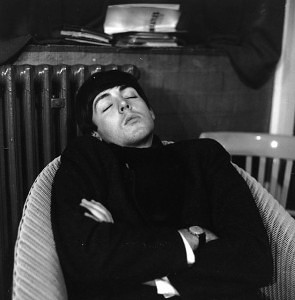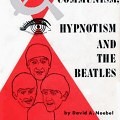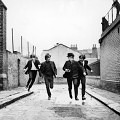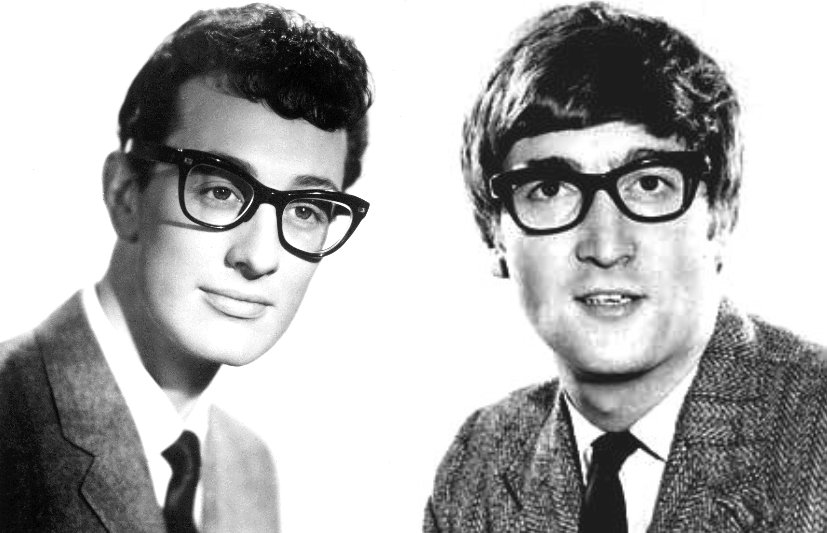- What John Lennon Thinks of Donald Trump - November 14, 2016
- The Meaning of Fun: The Paul is Dead Rumor - February 3, 2016
- BEATLES-STREEP-SHEA SHOCKER: IT’S NOT HER!!!! - August 13, 2015
DEVIN McKINNEY • Beatle Ed points me to this most interesting, warmhearted, clear-eyed essay by James Marcus, “Letting Go of the Beatles,” posted yesterday at the Harper’s site.
Even we, the besotted, must accept the validity, as we cough the exhaust fumes of the recent 50th-anniversary ballyhoo (which Hey Dullblog did its share to amplify or perpetuate), of a certain feeling of fed-upness with all things Fab. So Marcus’s piece gets me, and probably a lot of other Beatleheads of considerable duration, thinking. To delve into all the points where he and I are in essential comity would mean reproducing most of the essay. So I’ll confine the present remarks to describing a couple of foundational points where we differ.
While Beatle memorabilia are, for me as for Marcus, fetish objects, part of whose function is to stop time, that is not because they are “supposed to keep me from growing old.” They’re quite like a mirror, yes, a thing frozen and reflective, but in which I can see the changes I’ve been through since I last looked at/into them—be that 10 days or 10 years ago. (Forget about 30 or 35 years ago!) One reason the Beatles’ music remains richer for me than any other kind is that it has served, quite incidentally and without any making-it-so on my part, as an index of personal deepening and broadening—and sometimes shallowing and narrowing: of personal change, that is, in all directions. They don’t always reflect me handsomely, or winningly, or in the happiest conceivable way. But the fetish object, itself unchanging, always reflects me differently than it did the last time we met. So the “time” that is “stopped” when I look into my memorabilia mirror is a unique and irretrievable moment: there never has been and never will be another like it. That, it seems to me, is the opposite of trying to stay young forever.
“Because I’m a skeptical person,” Marcus writes, “I tend to grow suspicious of the things I love.” Man, me too! That’s what I’m most suspicious of—not because I assume I’m wrong (quite the opposite of that) but because my responses are purely and solely mine, and I have unlimited license to question, analyze, revise, or reject them. I can be harder and more challenging of myself because I’m the one person in the world I don’t have to worry about offending: I always know it’s nothing personal. Additionally, it’s often been said that the nature of critical thinking, of which I try to be a proud and unapologetic practitioner, is “Yes—but.” I.e., “This is good. But that’s not all it is.” Or, “This is bad. But that’s not all it is.” Or, “I love this. But that’s not all I do with it.” Anything that can be questioned should be questioned—especially anything that seems so easy. Is it really that easy? If so, let it stand the test of suspicion; and if it doesn’t fold under questioning, let it emerge stronger on the other side.
Case in point: The Beatles. It seems natural and right for some doubts to have an expiration date—or statute of limitations. Really, can even a skeptic be suspicious of his love of the Beatles after so many years, after so many phases of rejection and renewal have come and gone? So many temporary fatigues followed by so many breathless rediscoveries, with no hint that the cycle of recurrence will ever cease?
I analyze the Beatles at length. I question them, and myself in relation to them. I poke at, dig into, pull apart, and chew anew whatever piece of their temporally inert yet still throbbing body tickles my taste at a given moment. They are that abundant, that fructifying. If I get exhausted, it is not because the Beatles are exhaustible but because I, being a hog for sensation, will inevitably need other bodies to chew on. Being also a sort of mad scientist in the Frankenstein line, I will even need to go away so as to create bodies of my own, for others to chew on or spit out. (Those are called books, articles, and blog posts.)
I have gone through many phases of being, or seeming, tired of the Beatles. Of thinking, okay, enough for a while. The seductions don’t seduce; the dazzle goes dull; the gilt (to steal a phrase from Carr and Tyler) seems to have worn off the gingerbread. Ever since I was a kid, I have periodically wandered off from the Beatles’ musical, visual, and historical smorgasbord, feeling fully sated if not simply stuffed, so as to discover or reconnect with other artists, genres, styles, potentials—or to get away from music altogether: simply to read, think, let my world go quiet for a while. It’s biological and intellectual need masquerading, for the moment, as Beatle fatigue.
For a long time, I thought of these phases as rejections. But they weren’t. They were simply times of going away, imperative preludes to the eternal return.
I respect James Marcus for retaining a certain skepticism. But where I feel his grain of essential doubt, I do not feel any of my own. My Beatles love is abiding, everlasting, subject to but unmitigated by what only appears to be fatigue or fed-upness. In fact it is so much a part of me that, if it may be anthropomorphized as a “he,” it is like “The Other” in Edward Thomas’s poem of that name:
He goes: I follow: no release
Until he ceases. Then I also shall cease.














I’m plenty tired of the hype surrounding the 50th anniversary of American Beatlemania, but that’s quite different from being tired of the Beatles themselves. I find them inexhaustible because, more than any other band, they contain multitudes. And, like you, I find the Beatles’ music serves more as an index of personal change for me than a way of arresting time.
I like Marcus’ piece, although I find his statement that we should “Let the contemporary idols–Kanye West, Lady Gaga, Radiohead, Taylor Swift–have their turn” pretty funny. What, like they’re not already having it? The media is all over all of them (well, maybe not Radiohead) all of the time, and they’ve got plenty of listeners.
I do take his point about how the Boomers have dominated culture, but I wonder if he’s overstating just how big a part of the Beatles’ current “demographic” that group is. Time will tell.
Devin writes: “One reason the Beatles’ music remains richer for me than any other kind is that it has served, quite incidentally and without any making-it-so on my part, as an index of personal deepening and broadening—and sometimes shallowing and narrowing: of personal change, that is, in all directions.”
Doesn’t that make assessing and analyzing the art of The Beatles problematic? And a similar argument goes for assessing and analysis ‘culture vice versa The Beatles’, as you did very readable in ‘Magic Circles’?
If the sound and the images are fetishly connected to your life’s memories, we emphasis if not enlarge the details and impact of The Beatles’s art and images on others and culture in general.
Currently I am investigating ‘The Beatles and Fashion’, by Paolo Hewitt, to produce an extensive ‘fan-review’ of this wonderful book. In line with your argument above I just read your piece “Beyond The Ordinary: From Mop Tops To Chic” for CBS New York. If I may?
You write: “Beatle style wasn’t androgynous, except in the narrowest terms of the time, but it implied pansexuality. That spooked the fogeys: jokes about gender and wigs were made by TV comedians wearing mascara and Grecian Formula.”
Who says ‘The Beatle style wasn’t androgynous’? The reference? Did their style really imply pansexuality? John Lennon en Ringo on the Ed Sullivan show nor all of them during the press conference were masculine beyond any doubt. The ambiguity they brought to America was hardly sexual… Or what am I missing something? I suppose the response of USA fogeys is true and verifiable, or did you see just a few?
How can we argue or proof the causal relation between The Beatles fashion and the change of clothing by Dad, my sexy aunty and our sisters? We may have seen The Beatles doing a freer style, in tune with the music, ‘we’re free to do what we want’, and to carry on and not be bothered by anybody to look as our parents as we did up until early 1964. Does that really make “Beatles ’64 … a classic look because it symbolizes today what it did then: style as freedom”, what does ‘classic’ mean, can we still do it, and radiate ‘freedom of style’ today?
Are we more beautiful because of The Beatles? Or is it because consumerism of the Americans conquered the ordinary people in Europe and the USA… after the 2nd world war.. and of course that included the way we dressed… which, in the way I, coming from a conservative lower middle class family, experienced it was an escape our parent’s norm to youth uniformity in styling?
B.t.w. Your writing on The Beatles is inspiring as ever… Thx.
This line contained because of my poor english a logical mistake: ‘John Lennon en Ringo on the Ed Sullivan show nor all of them during the press conference were masculine beyond any doubt.’
It should’ve been better: “John Lennon and Ringo on the Ed Sullivan Show, and all four lads during the press conferences were masculine beyond any doubt.” John was provoking sex with his wide legged stand at the mike, physically claiming sexual dominance.
Devin, thanks so much for that smart, insightful response. To some degree my piece is tongue-in-cheek, or at least a kind of thought experiment. Of course I’m a diehard fan–but I wonder how closely that is tied to my generational relationship with the band, and I also feel a sneaking sympathy for post-Boomers who don’t necessarily view the Fabs as a pop-cultural gold standard. As for those fetish objects, that may have something to do with age after all. When I was 47, I felt for the first time that youth was truly and definitively behind me: I was turning into something else, maybe an Older Younger Person or a Younger Older Person. This wasn’t a tragic development, just business as usual, but now it’s eight years later and I think even more about the transience of it all and the idea of stopping time is that much more alluring. Maybe your relationship to those objects will shift, maybe not–let’s confer in early 2022! As for Nancy’s comment, I wasn’t really addressing the 50th anniversary hype in particular, although that was certainly a convenient moment to think about these issues. It was my own, deeply enveloping fascination with the Fabs that I was attempting to slide under the microscope. An amusing footnote: when I sent a shorter version of the piece to the op-ed section of a certain metropolitan daily, the response was “the Beatlemaniacs here are having none of it.”
Devin: Just curious: Do you think you’ll ever write another book on the Beatles? And if so, what would the topic be?
@Drew:
Never say never, right? For topic, I’m open to inspiration; but there are other books—including two I’m working on right now—to get rid of first.
@James:
It took a second, subtler reading for me to realize that your piece wasn’t really quite about what the title said it was about. It was more about, how did you put it, the Baby Boomers breaking the generational compact—which as I’m sure you know is what Lester Bangs decried, under other circumstances and in much harsher terms, in “Thinking the Unthinkable about John Lennon.” That each generation owes it to history to do its thing and then clear the stage has always struck me as a theoretically valid notion with a lot of problematic aspects to it. The main one being: What if the next generation produces nothing sufficient to supplant what the last one left? If succeeding Gens, X, Y or Z, in their wanderings, make their own organic way back to the wellspring of their forebears, in this case the Beatles, isn’t that the marketplace of taste rendering its verdict?
[Later note: I now see that a lot of this ground was covered next door in the comments to Mike’s post on “The Beatles in History”; if you see the same points being made here, it’s not because it’s a gang-up on James but because Mike and I find ourselves thinking on parallel tracks.]
The boomers certainly do hang on, they certainly do like their Viagra and weekend rock bands and nostalgia, but that’s demographics that say more about the generation than about a band that, as you point out, were not boomers at all but in-betweeners, or on-the-verge-ofs. I do think the Beatles exist outside of a lot of temporal (read, generational) trappings that will in the long run depress the stock of other major artists—e.g., Dylan and the Stones, two entities who unlike the Beatles have next to nothing to offer 12-year-olds, let alone younger ones. I have always presaged that when the boomers go, Dylan and the Stones will go with them—not to the Great Beyond, but to the Great Back There, our rich musical heritage where exist all the past masters of past eras, Ellington, Sinatra, Fitzgerald (Ella), Waters (Muddy), so many others. Smart adults will continue to get them; discerning post-adolescents will find them interesting. But the young will have no use for them, and a whole generation of boomers will not be around to buy their box seats and box sets. With their appeal to the young of all ages, I see the Beatles living long enough to bury us all.
If I’d written a real answering essay to you instead of “responsive notes,” I’d have dealt with the fact that you’re clearly a decade or so older than I. The Beatles are bound to mean some of the same things to both of us, but in very different ways. Being born two years after the baby boom officially ended frees me from anxiety over these particular issues—I don’t have a generational relationship to the band, only an imaginative one—so the duration of their appeal isn’t so wired in to a sense of my own mortality. Perhaps.
But nothing is fixed, nothing finished, not while we live. Of course you’re right; who knows what 10 years bring: my relationship to the Beatles might shift in a way it hasn’t, and couldn’t have, over the last 10 years, or the 10 years before that. Let’s confer in early 2022.
@Rob:
You’re absolutely right that the question of one’s own “fetishes”—artists or works loved and stroked so intently they pass beyond perspective, go beneath analysis—complicates critical and historical commentary. Any commentary that attempts a personal as opposed to corporate or consensus vision is inherently problematic. But think of how it can raise the stakes for both writer and reader—the writer because he or she must write more vividly, more daringly; the reader because he or she must read more acutely, more actively.
I write about things I care about, and in writing about them I think a lot about why I care about them, and those facts ensure I will often write about artists or other phenomena that have taken on a fetishistic importance. But even though as a critic or historian you work from that basis, when functioning in those modes you step outside of it. You examine your own response almost as if it weren’t yours, in a spirit of determined objectivity or cool appraisal—as if you could extract that deep animal response from your heart and head and see it wriggling on a table. That extraction allows you to see your fetish as both a thing with objectives qualities and as a living part of a bigger picture, including the table and the room and the house and the world. Seeing your fetish wriggle, coo, growl, or twist on a table frees you from it just long enough for you to get a bead on the thing—before you finish your writing and tuck it back in its nestle.
In this blog post you’re responding to, I’m writing as more of a personal essayist than as a critic or historian, or any kind of analyst who puts two and two together with six and gets 47—and tries to make you believe it. Personal essay, especially this off-the-cuff type, doesn’t entail that spirit of objectivity—at least not for me: I find the form closer to short story than to criticism. So I say things in this context that I would never say while wearing my critic’s cap, or my historian’s woolen mittens.
As for that CBS News thing I wrote on the Beatles’ style, it’s not a three-course meal; it’s a bon-bon at best. Take it seriously at your own peril! Let me copy-and-paste something I wrote in the comments to Hologram Sam: “My mom read it and kidded me, “Oh, so the Beatles were to blame for those horrible 70s styles?” I said, “Yes, Mom, in the completely unsubtle world of less-than-500-words, hit-it-and-quit-it, completely-uncompensated blogging, whoever you’re writing about at the moment gets pretty much all the credit and all the blame.”
That was joking and it was serious. When you’ve got just 500 words to fly on, the first things you jettison are any kind of complexity, counter-argument, delicate illustration or interweave. You go for broad and you hope true strokes. Do I believe there is a connection between what the Beatles brought to America in ’64 and the way my dad looked in ’71? Absolutely. Were there many, many other factors at work? Absolutely. But even to clear one’s throat in advance of the analytical-historical attack required by that second “absolutely” would exhaust the potential of a 500-word potshot on an anniversary blog. That attack would, and does, require a book—like the one you’re working on.
To instantiate a difference between personal essay and the objective examination of subjective response that is criticism: “My Beatles love is abiding, everlasting.” That’s pure rhetoric. It’s birdsong. It certainly expresses how I felt that moment, and I hoped it would sound good; but really, how do I know, any more than you, what next week brings, let alone what will last forever? Do I want, or expect, to be held to that as a literal statement? No. But there’s the blurry overlap between creative writing per se and a kind of critical language that aims for some of poetry’s effect. Maybe for you it has that effect, maybe not.
If it does, and if you find it in any measure or manner inspiring—and I’m deeply flattered if you do—you might use that personal essaying on the Beatle fetish as a divining rod, a symbolic instrument to wave around as you search out your own cache of magic, your own bit of truth. But if you employ it as a compass, a practical guide through the complexities of even a small piece of history—like the Beatles’ influence on where fashion went in the 1960s—it won’t get you nearly as far as you can get on your own.
P.S. About the Beatles and androgyny: Many jokes were made about their ambiguous sexuality, the impossibility of “normal” male hair attaining that length, etc. If you want quotes, give me a few days to dig around—though on a direct level I can point to the Boston garage band the Barbarians’ “Are You a Boy or Are You a Girl,” from 1965, a song that simply would never have been conceived if the Beatles hadn’t come. Note the lyric which apes the complaint of an older generation’s sexual confusion: “You may be a boy/ You look like a girl/ You’re either a girl/ Or you come from Liverpool.”
Of course the Beatles look wholly masculine—to you, to me, to any of us whose definition of that word admits a broad range of possibilities. But the mere fact that I, a heterosexual, can find, and admit that I find, the Beatles incredibly sexy is already a destabilizing influence on the rigid sexual differences upon which both the western and eastern cultures have largely been founded. Imagine how destabilizing the fact of heterosexual desire for the Beatles’ beautiful male faces and bodies was in the America of 1964—when the physical and emotional possibilities of masculine expression were so much narrower than they are now.
Whenever I feel myself feeling beatle fatigue, I refresh myself with offbeat youtube covers like this:
http://www.youtube.com/watch?v=UxLuLu1GQAY&list=UUASeIT1_mGfGo9YjnOtDDAw